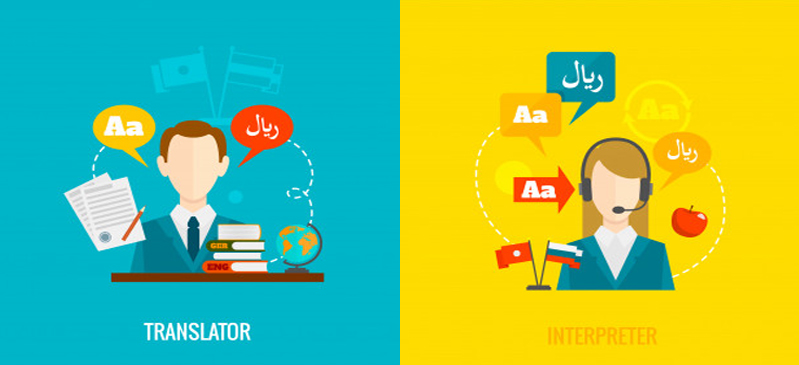It is wrong to assume that an interpreter and a translator do the same job. Unfortunately, people often fail to make the distinction between the two and they may end up wrongly asking for one instead of the other.
In simple terms, an interpreter deals with the spoken word while a translator does so with written texts. In carrying out their roles, translators rely more on extensive research using dictionaries and other material sources to get the meaning of what they are translating correctly. Often this can take several days before a text is perfect.
On the other hand, the interpreters depend on their memory. Their work is instantaneous because they deal with the spoken word.
What marks out a good translator is the ability to write the source language into a different language well. An interpreter only needs to speak it well. However, both require a good mastery of several cultural and linguistic skills.
Document Translation
Therefore, it means that efficient document translation is the work of a translator. The differences in the aptitude, skills, training and the extent of the knowledge of another language are so significant that it is almost impossible to handle both interpretation and translation professionally.
Translating texts effectively depends greatly on a deep understanding of the culture of the source language. Clear and precise rendering of a text into a target language is the basis of translation. The cost of translating documents is always determined on a cost per word basis.
Maintaining the unique text layout in terms of styling and format is very important in translation. All translators need special expertise in particular subject areas.
Court Interpreter
Interpreting spoken content unambiguously is a skill a court interpreter largely depends on because the act of repeating out loud what is said takes special skills.
While working with defendants or witnesses in court, an interpreter must not make even the slightest error because that can negatively influence the outcome. And apart from being able to fluently speak more than one language, the interpreter must also possess formal qualifications in interpreting legal terminologies.
They must have certification from the National Association of Judiciary Interpreters or the federal court. Of uttermost importance is the ability to convey both the style and tone of the speaker.
Arabic Translator
Having a certification for Arabic court translation is the most crucial step to being an Arabic translator. Translating it comes with several challenges because of the varieties of dialects existing in the language.
And because formally written Arabic is different from the spoken version, it is essential for the translator to know in advance the purpose of the text being translated. The best format for translating the language is to use Modern Standard Arabic
German Interpreter
The importance of interpreting German cannot be gainsaid because it is the largest economy in the European Union.
Any business intending to extend its reach globally needs a German interpreter because the country is the third-largest exporter of manufactured goods. It also provides some of the most efficient and highly-skilled workforces, making it a focal point of international businesses.
Overall, what matters in either interpretation or translation is the efficiency and accuracy of the information being transmitted.

